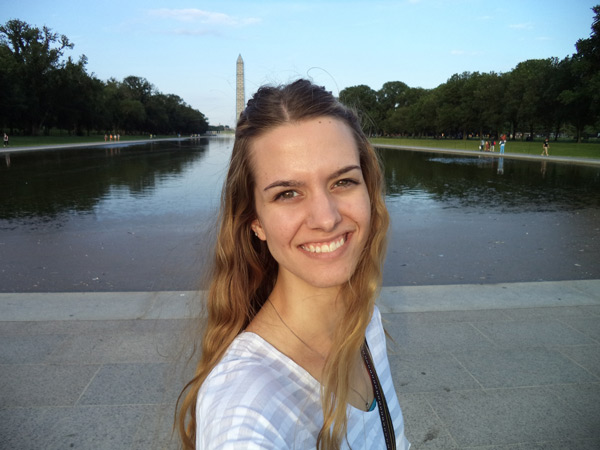
Of Governments, Complexity, and a Changed Perspective
Long before I even set foot onto the plane that would take me from Arizona to Washington, D.C. and on to London, England, I knew that I was very interested in Political Science. I had chosen the subject for my minor to complement my major in Sustainability and concentration in Policy and Governance in Sustainable Systems, and even though I became more aware of the challenges that came with studying it as I progressed in school, I still thoroughly enjoyed my classes. I liked them so much that I jumped at the chance to participate in a study abroad program entitled “Comparing Sustainability Across Cultures and Governments”. It was, in my opinion, the perfect combination of my major and minor, and I hoped to walk away from my trip having gained more knowledge about the way government serves as an advocate for sustainability.
As fascinating as the study of politics and bureaucracy within the context of sustainability-related policy is to me, I will be the first to admit that it is a difficult subject to study. Prior to my trip, it was not uncommon for me to struggle in my political science classes because of the sheer complexity of the subjects I tackled. I would stare in confusion at the lecture notes or textbook and try to understand the roles of hundreds of people that somehow ran and protected the country. Intricate details from the necessity of certain policies to their creation and implementation made my head spin. Had I not received the chance to study outside of the classroom in the summer of 2013, I might still be stumbling along in my classes.
In our de-briefing session before we officially ended our two-week program, my group and I gathered at the ASU London headquarters with our faculty directors and talked about what we had learned. I raised my hand and told the room that the most important thing I had learned was that government was ridiculously and outrageously complicated. One of my faculty directors nodded at me and announced in triumph, “That is one of the main things I wanted you guys to learn on this trip.”
Never again will I look at my political science classes in the same way. During my trip we talked to so many American and English high-end government officials that must remain anonymous but who gave such great insight as to how bewildering our government is yet how it all comes together to eventually structure their respective countries. One speaker discussed the budget process and told us at the end of his presentation that we officially knew more about how it worked than 99% of the entire country did. Another official told us how politics played a role in everything and how irritatingly difficult it was for agencies that conduced scientific research to obtain funding due to political battles. Most of our presenters pointed out the complexity of advancing federal sustainability policy in a government where it is far easier to block bills than pass them. Before my various talks with these executives, I had a textbook-definition of how our government functioned that I vaguely applied to my classes. After learning just how complex it is, I now have a whole new perspective. My classes have such a depth to them now because I can see exactly why things are the way they are.
Another great part of this trip was that it sparked an interest of mine that I had not given much thought to prior to departure. I had chosen to study the intersection of sustainability and education for my research paper, but this trip additionally opened my eyes to the role that government plays in improving our education system so that it reflects sustainability-initiatives in academic curriculum. I learned that the federal government actually has far less of a presence in our nation’s education system than I had believed. In reality, the power of enforcing academic standards lies with local, state governments, further adding to the many meanings and roles of bureaucracy.
Before he set us free that last official school day in London, our faculty director informed us that the first time he had completed a program similar to ours, it had taken him a full year to fully digest everything he had learned in just a few short weeks. I see exactly what he meant as I sit here in October 2013. My trip ended over three months ago and I am still contemplating everything about political science that I had been taught. As I further my education, I know I will recognize lessons and continue to apply that knowledge I took away during my trip to my classes. And as I figure out what I want my role in society to be in the upcoming years, I know I will apply everything I have learned to everyday life long after I graduate.

